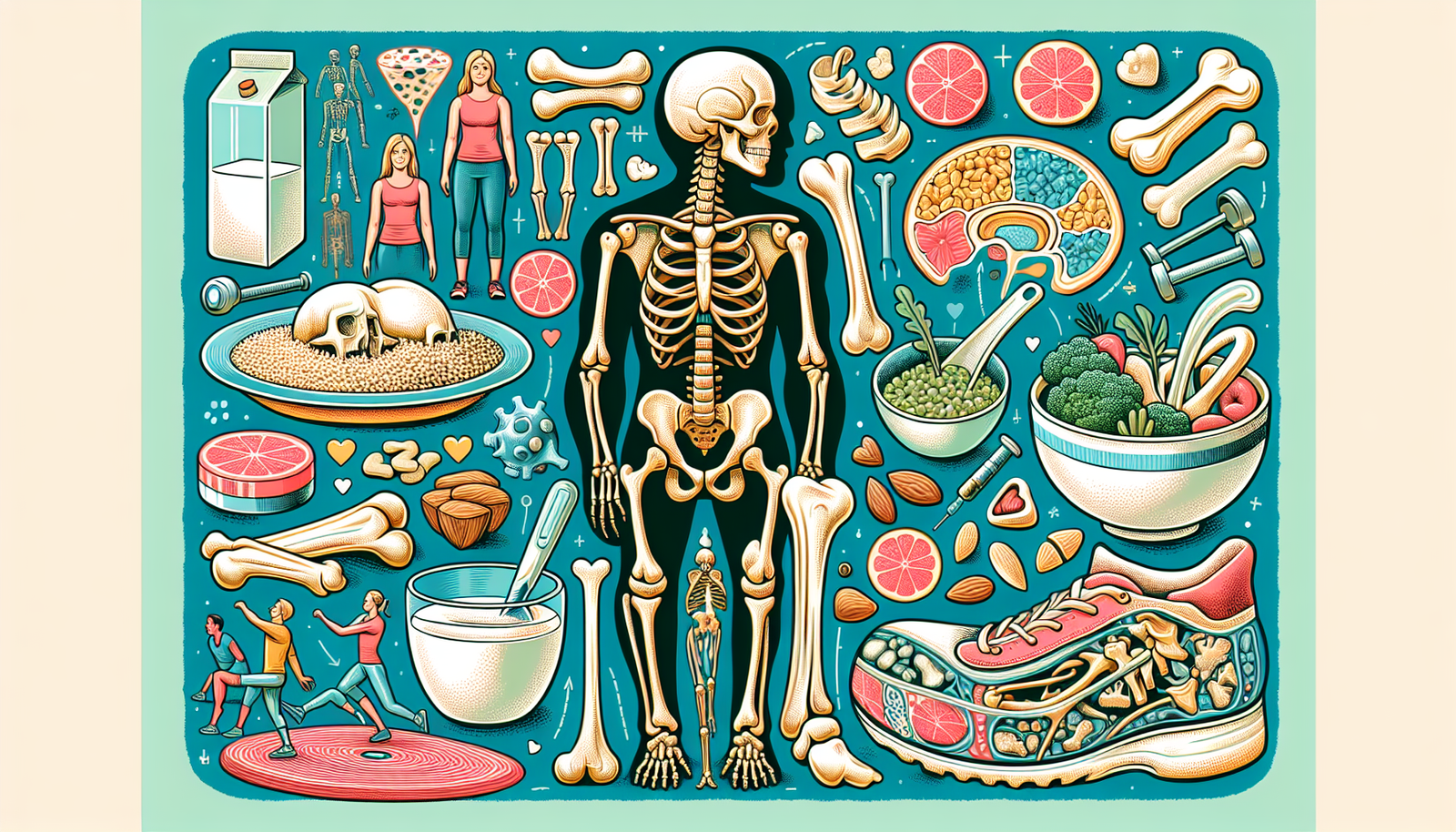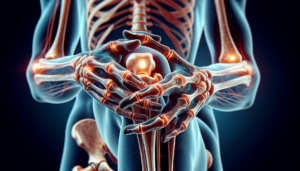How Turmeric Supports Joint Health
Understanding Turmeric and Its Active Compounds
Turmeric, a bright yellow spice derived from the Curcuma longa plant, is widely recognized for its culinary uses and medicinal properties. The primary active compound in turmeric is curcumin, which is responsible for many of its health benefits, especially in the context of joint health. Understanding how curcumin interacts with the body provides a comprehensive view of how turmeric can support joint function and alleviate discomfort associated with joint-related issues.
The Role of Inflammation in Joint Health
Joint health is often compromised by inflammation, a natural response of the body to injury or infection. While inflammation serves a protective role, chronic inflammation can lead to joint pain, stiffness, and conditions such as arthritis. There are various types of arthritis, including osteoarthritis and rheumatoid arthritis, both of which are characterized by inflammation and degeneration of the joint tissues.
Anti-Inflammatory Properties of Curcumin
Curcumin exhibits potent anti-inflammatory properties that can inhibit various molecules responsible for inflammation. It influences the activity of several inflammatory markers, including:
- Cytokines: Curcumin inhibits pro-inflammatory cytokines like IL-1, IL-6, and TNF-alpha. These molecules are critical players in the inflammatory pathway and contribute to joint pain and degradation.
- Enzymes: Curcumin reduces the activity of cyclooxygenase-2 (COX-2) and lipoxygenase, enzymes that facilitate the production of inflammatory mediators.
- Nuclear Factor-kappa B (NF-kB): Curcumin prevents the activation of NF-kB, a protein complex that plays a crucial role in regulating the immune response and inflammation.
Antioxidant Effects of Curcumin
In addition to its anti-inflammatory effects, curcumin is a powerful antioxidant. Oxidative stress is known to exacerbate inflammation and joint damage. By scavenging free radicals and enhancing the activity of antioxidant enzymes, curcumin can help protect joint tissues from oxidative damage. Key antioxidant effects include:
- Reduction of Reactive Oxygen Species (ROS): Curcumin has the ability to neutralize ROS, minimizing cell damage and inflammation.
- Enhancement of Glutathione Levels: Curcumin enhances the synthesis of glutathione, a critical antioxidant that protects cells from oxidative stress.
- Regulation of Antioxidant Enzymes: Curcumin influences the activity of enzymes such as superoxide dismutase (SOD) and catalase, which degrade harmful oxidants.
Modulating Joint Degeneration
Joint degeneration is a significant concern in chronic conditions like osteoarthritis. Curcumin supports joint health by modulating the biochemical pathways involved in cartilage degradation. This modulation includes:
- Inhibition of Matrix Metalloproteinases (MMPs): Curcumin inhibits MMPs, enzymes that break down cartilage and extracellular matrix components.
- Protection of Chondrocytes: Curcumin protects chondrocytes (the cells found in cartilage) from apoptosis, thereby promoting cartilage health.
- Reduction of Catabolic Factors: Curcumin reduces the levels of catabolic factors like nitric oxide (NO) and prostaglandins that lead to joint erosion.
Clinical Evidence Supporting Turmeric for Joint Health
Numerous studies have investigated the effects of curcumin and turmeric on joint health, particularly in the context of arthritis. Here are notable findings from various clinical trials:
- Osteoarthritis: A study published in the Journal of Alternative and Complementary Medicine found that curcumin supplementation significantly reduced pain and improved physical function in patients with knee osteoarthritis compared to a placebo.
- Rheumatoid Arthritis: Research in the Journal of Clinical Rheumatology showed that curcumin supplementation led to a reduction in disease activity and joint tenderness among individuals with rheumatoid arthritis.
- Combination Therapy: Some studies indicate that curcumin may enhance the efficacy of conventional anti-inflammatory medications, suggesting that it may work synergistically when combined with prescription drugs.
Dosage and Bioavailability Considerations
While turmeric and its active compound curcumin are recognized for their health benefits, the challenge often lies in their bioavailability. Curcumin is poorly absorbed in the body; thus, optimizing its absorption is crucial to its effectiveness. Here are several methods to enhance curcumin bioavailability:
- Piperine: The active compound in black pepper, piperine, has been shown to increase curcumin absorption by up to 2000%. Many turmeric supplements contain piperine for this reason.
- Fat Consumption: Curcumin is fat-soluble, meaning it’s better absorbed when consumed with fats. Adding turmeric to dishes with healthy fats (like olive oil or coconut oil) can enhance absorption.
- Supplement Formulations: Look for standardized curcumin extracts (typically providing 95% curcuminoids) in supplement forms, often combined with ingredients designed to improve absorption.
Potential Side Effects and Precautions
Though turmeric and curcumin are generally considered safe for most people, side effects may occur, particularly at high doses. Potential side effects include:
- Gastrointestinal Issues: High doses may result in upset stomach, nausea, or diarrhea.
- Blood Thinning: Turmeric may have anticoagulant effects, which can interfere with blood-thinning medications.
- Pregnancy and Breastfeeding: While culinary amounts are generally safe, high doses of turmeric supplements are not recommended during pregnancy or breastfeeding.
Before starting any new supplement regimen, especially for joint health, it’s crucial to consult a healthcare provider, particularly for individuals with underlying health conditions or those taking medications.
Lifestyle Factors That Enhance Joint Health
In addition to incorporating turmeric into the diet, several lifestyle modifications can further support joint health:
- Regular Exercise: Engaging in low-impact activities like swimming, cycling, and walking can help maintain joint function and reduce stiffness.
- Weight Management: Maintaining a healthy weight reduces stress on weight-bearing joints, particularly the knees and hips.
- Balanced Diet: A diet rich in anti-inflammatory foods—such as fruits, vegetables, fatty fish, and whole grains—can complement the benefits of turmeric and promote overall joint health.
- Adequate Hydration: Staying well-hydrated lubricates joints and helps maintain their function.
Conclusion-Reinforcing the Impact of Curcumin on Joint Health
Curcumin presents a multifaceted approach to support joint health through its powerful anti-inflammatory, antioxidant properties, and its ability to inhibit joint degeneration. Its effectiveness is supported by research, indicating it can be a valuable adjunct in managing joint-related conditions such as osteoarthritis and rheumatoid arthritis.
By increasing knowledge about turmeric, understanding dosing considerations, and combining it with beneficial lifestyle practices, individuals can take informed steps toward enhancing their joint health and overall well-being.








